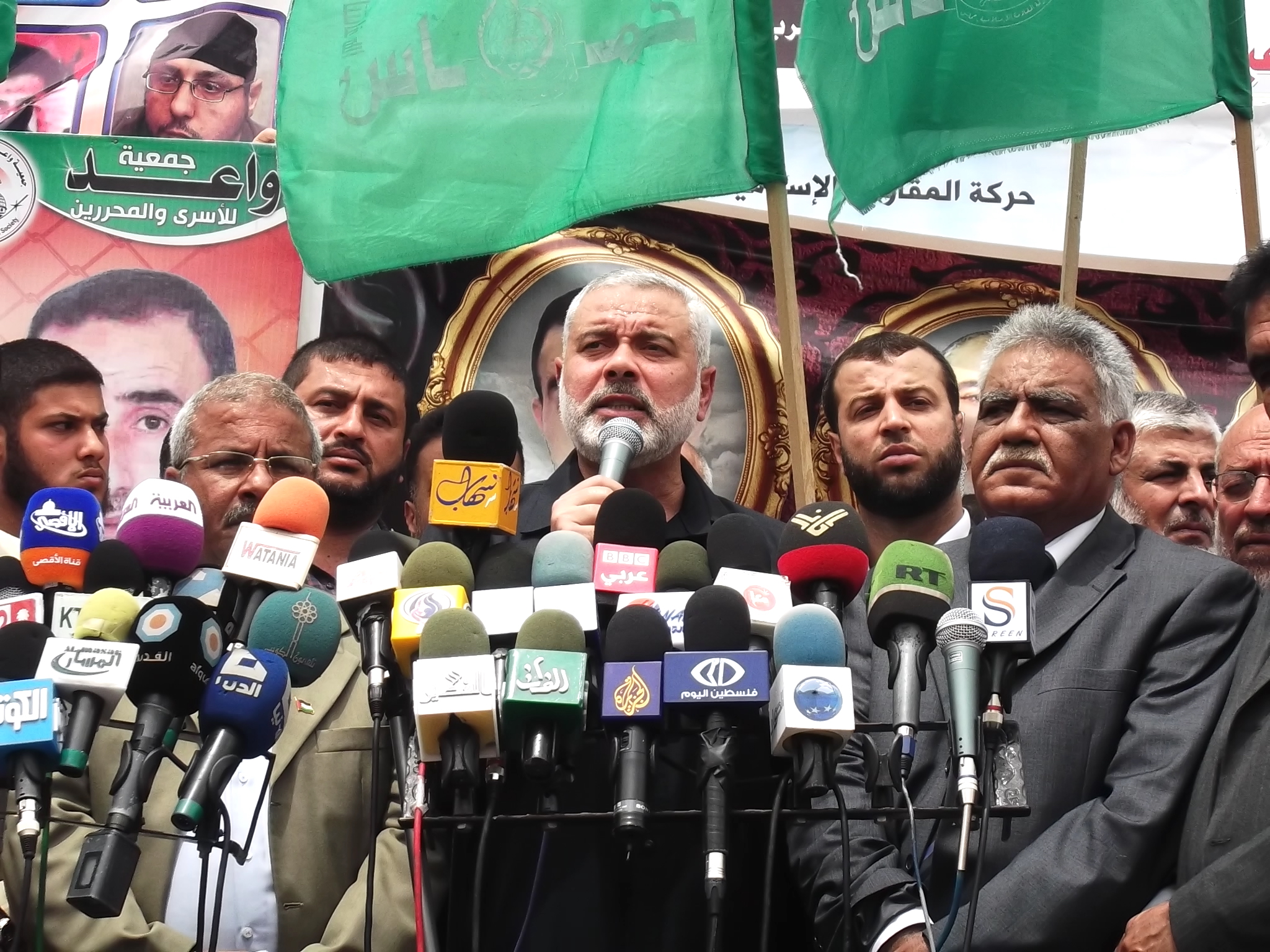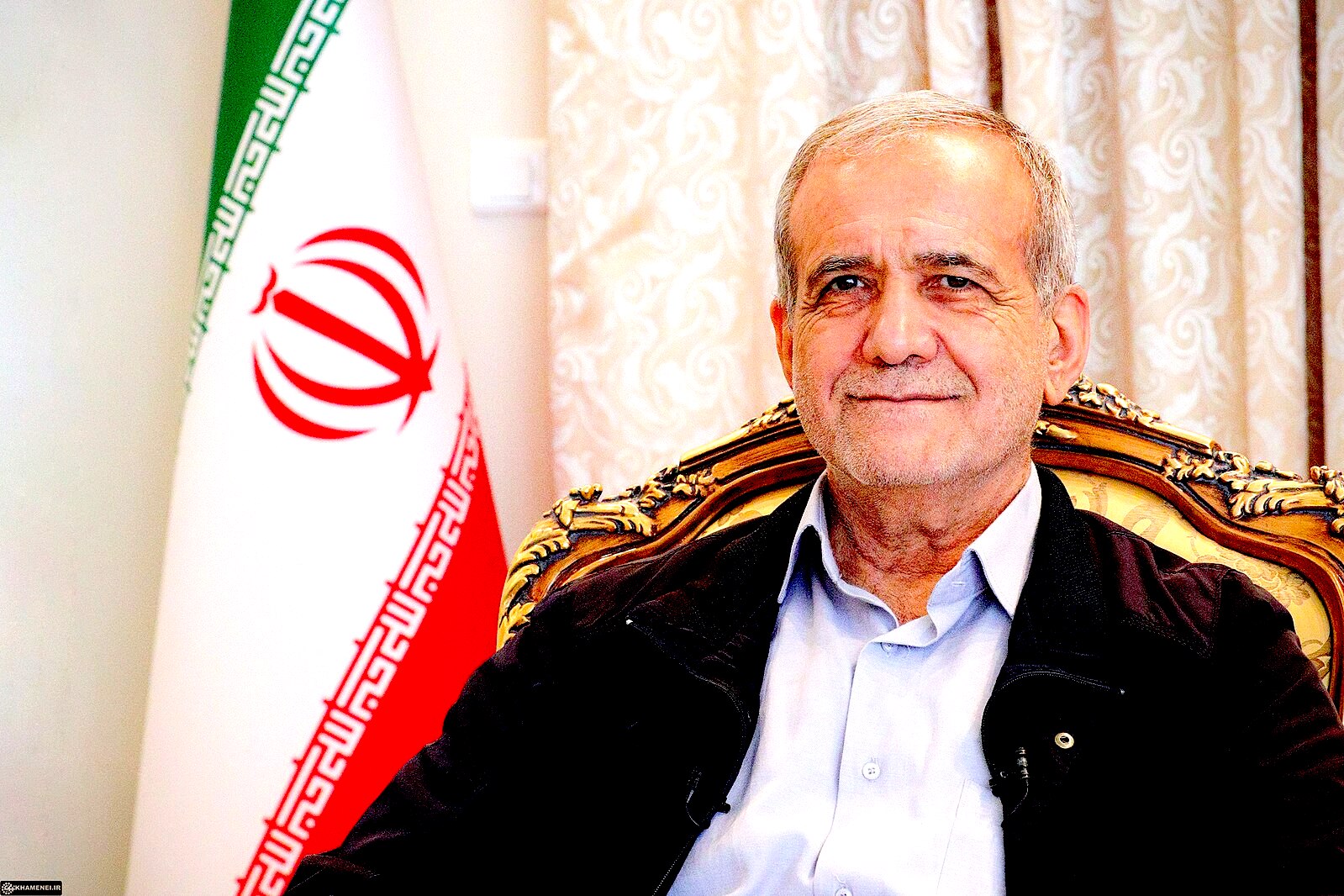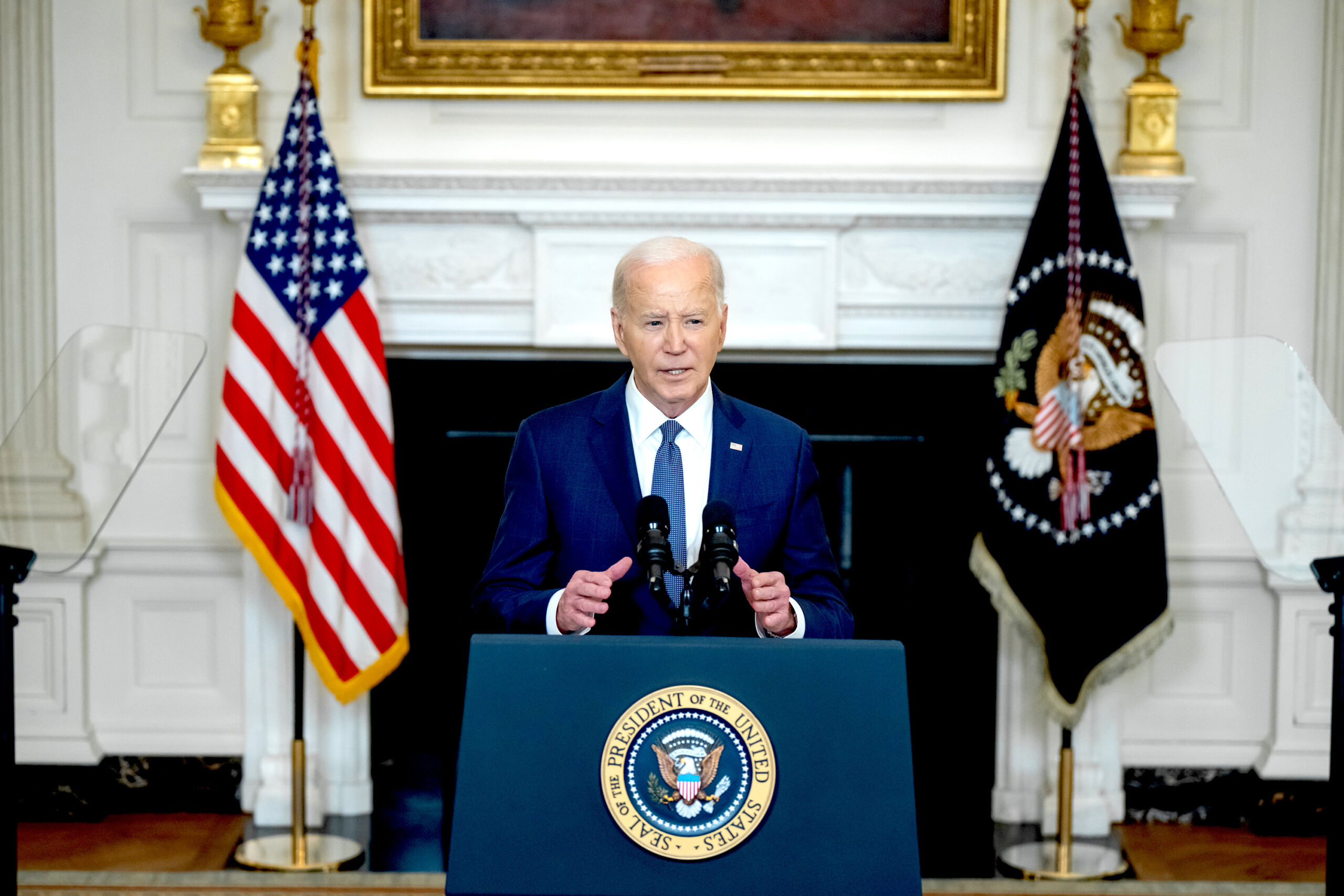Phyllis Bennis says the killing of Haniyeh in Tehran was a deliberate provocation that matches Netanyahu’s longstanding goal of drawing the U.S. into a potential Israel-Iran war.

Ismail Haniyeh speaking in Gaza in April 2012. (Joe Catron, Flickr, CC BY-NC 2.0)
By Phyllis Bennis
Common Dreams
 A new assassination campaign aimed at Israel’s opponents has erupted across the Middle East, imperiling already shaky Gaza ceasefire talks and threatening an even greater regional expansion of war.
A new assassination campaign aimed at Israel’s opponents has erupted across the Middle East, imperiling already shaky Gaza ceasefire talks and threatening an even greater regional expansion of war.
While Israel continues its genocidal attack on desperate Gazans, killing scores, perhaps hundreds just in the last several days, the latest moves were clearly designed to escalate Israel’s war in Gaza and expand the military tensions already simmering on its border with Lebanon, in Syria, Iraq, Yemen and elsewhere into a full-scale war, potentially drawing in both Iran and the United States even more directly.
The lethal attacks on top military and political officials of Hezbollah and Hamas, in Beirut and Tehran respectively within 24 hours, demonstrates the centrality of assassination — and the irrelevance of diplomacy — in Tel Aviv’s strategic calculus.
[The New York Times reports that Israel has claimed a third assassination, see Israel Claims Killing of Militant Leader as Funerals Are Held for 2 Others]
Tuesday evening in the Lebanese capital, an Israeli airstrike hit the neighborhood of Dahiyeh, destroying a residential building very close to a major hospital, killing and injuring still-unconfirmed numbers of people.
Israel claimed it killed Fuad Shukr, a top military official of Hezbollah, and a close adviser to Hassan Nasrallah, head of the political-military resistance organization in Lebanon. [Hezbollah has confirmed Shukur’s death.]
Palestinian Resistance factions mourn Hezbollah commander Fouad Shokor
The al-Qassam Brigades praised the martyr's central role in "supporting the Palestinian people and their Resistance" during Operation al-Aqsa Flood. https://t.co/LDNzZu7V5o
— Al Mayadeen English (@MayadeenEnglish) July 31, 2024
A delegation from the Popular Front for the Liberation of #Palestine has joined the procession at Al-Quds Square in Haret Hreik to participate in the funeral of prominent leader, martyr #FouadShokor, also known as Sayyed Mohsen.
– #AlMayadeen's correspondent Ahmad Abdallah… https://t.co/DH6bagoiFk
— Al Mayadeen English (@MayadeenEnglish) August 1, 2024
Just hours before that Israeli strike, U.S. State Department spokesman Vedant Patel said that U.S. officials “do not believe that all-out war is inevitable and we still believe that it can be avoided.” That followed his statement that “our commitment to Israel’s security is ironclad and unwavering against all Iran-backed threats, including Hezbollah, and we are working on a diplomatic solution.”
[Watch: U.S. Sen. Lindsey Graham says U.S. is on the ‘verge of a major conflict’ with Iran]
But the U.S. has made clear by its actions — regardless of some politicians’ rhetorical support for ending the war — that it is not prepared to do the one thing that would result in a permanent ceasefire: stop sending Israel the weapons that enable the war in Gaza.
To the contrary, the possibility of a diplomatic solution was grievously undermined again just hours after the Beirut attack when another airstrike, widely assumed to be Israeli, assassinated the political leader of Hamas, Ismail Haniyeh, in a guest house in Tehran.
He was visiting the Iranian capital for the inauguration of just-elected Iranian President Masoud Pezeshkian. Haniyeh, who had briefly served as prime minister of the Palestinian Authority after Hamas won the 2006 Palestinian elections that were initially welcomed by the United States, lived in exile in Qatar.
In recent months he played a key role in the Qatar-sponsored and U.S.-backed Israeli-Hamas negotiations aimed at ending Israel’s assault on Gaza, ensuring access to humanitarian aid, and releasing illegally held Palestinian prisoners and Israeli hostages.

Iran’s President Masoud Pezeshkian in 2024. (Khamenei.ir, Wikimedia Commons, C BY 4.0)
All the talk about Washington and Tel Aviv supporting a ceasefire or wanting the hostages returned means little when a top negotiator on the other side can be assassinated with impunity.
Haniyeh was widely recognized as pragmatic and supportive of negotiations; in 2006, just three months after Hamas won the Palestinian election in both Gaza and the West Bank, Haniyeh wrote to then-President George W. Bush urging negotiations between the U.S. and Hamas, and offering acceptance of a two-state solution and a long-term truce with Israel.
The current situation, he wrote, “will encourage violence and chaos in the whole region.” Bush never responded.
The negotiations the Hamas leader was participating in will almost certainly be stalled, if not derailed entirely, as a result of Haniyeh’s killing. The resulting continuation of Israel’s genocidal war in Gaza matches the goal of Israeli Prime Minister Benjamin Netanyahu, who has resisted ceasefire efforts and pledged to keep fighting until Hamas is destroyed.

Biden announcing Israel’s three-phase ceasefire proposal for Gaza on May 31. (White House, Wikimedia Commons, Public domain)
The likelihood of an expanding regional war is now exponentially higher — with the danger of a much more direct conflict between Israel and Iran, and the possibility of even greater direct U.S. involvement.
The assassination of Haniyeh in Tehran was a deliberate provocation, aimed at forcing an Iranian reaction.
Any government whose intelligence assets were powerful enough to know exactly where the Hamas leader was staying during a temporary visit to the Iranian capital would have known where he lived in Qatar, where an assassination, while of course still illegal, would not have had the same consequences.
#Iran's acting foreign minister stressed, in calls with regional counterparts, that Tehran will respond to the assassination of Hamas leader Ismail Haniyeh due to him being attacked on Iranian soil.#Palestine https://t.co/enASJn7EKu
— Al Mayadeen English (@MayadeenEnglish) August 1, 2024
Forcing Iran’s hand, particularly at the highly symbolic moment of the inauguration, will severely limit the options for the new president, who has called for renewed negotiations with the United States on nuclear issues and signaled the possibility of reopening the Iran nuclear deal.
Preventing that would match Netanyahu’s longstanding goal of undermining any hint of a U.S.-Iranian rapprochement and bringing the United States directly into a potential Israeli-Iranian war.
While details on the exact nature of the missiles or other kind of projectiles used in the two assassinations have not yet been made public, it is likely that one or both were U.S.-produced and/or U.S.-funded.
In that circumstance, the U.S. complicity in genocide by providing the weapons Israel is using in Gaza, could expand to direct U.S. involvement in what could escalate into a major regional war — exactly the war that U.S. officials claim they are trying to prevent.
The work of the movement for a permanent ceasefire — a ceasefire that includes an end to the killing, the resumption of humanitarian assistance and funding of UNRWA, and an end to U.S. arms transfers to Israel — is about to get a whole lot harder, and a whole lot more urgent.
Phyllis Bennis is a fellow of the Institute for Policy Studies and serves on the national board of Jewish Voice for Peace. Her most recent book is the 7th updated edition of Understanding the Palestinian-Israeli Conflict: A Primer (2018). Her other books include: Understanding the US-Iran Crisis: A Primer (2008) and Challenging Empire: How People, Governments, and the UN Defy US Power (2005).
This article is from Common Dreams and was co-published with Foreign Policy in Focus.
Views expressed in this article and may or may not reflect those of Consortium News.

any red lines left anywhere?
only red alerts now.
and way too much blood shed.
i utterly fail to comprehend how israel’s current prime minister
and his cohorts of colonial settlers can get away with so much?
evangelical christian visions of armageddon can’t be the reason?
as to western dreams of forever controlling crude oil countries
and even all the territories beyond them, given their resources,
ALL of which the west, i.e. global north needs for its comfort …?
shame on all our deMOCKracies and their “rules-based order”.
rise to the occasion, do the least thing: stop arming settler colonists,
for humanity’s sake – if you remember what that is and still happen
to care!
what if iranian officials suddenly said:
“let’s not react to hanieh’s assassination!
let’s duly mourn his wrongful death – and
show israel’s prime minister:
YOU SHALL NOT PROVOKE US
into stooping as LOW as you have.
because we care about human life!”
wishful what-if’ism, i know.
[didn’t the US foreign minister state that, in his view, the war in ukraine
could continue for quite a while bc it creates plenty of US employment?
didn’t some US lawmaker list all the natural resources available in ukraine,
then added: “you think i would want them to fall into russian hands?”]
in 2026, the latest, i.e state of the art US missiles
are scheduled to be stationed in my EU country.
[five minutes flight time to moscow, by the way.]
if any of the current conflicts spread, maybe the
money invested in making all those ‘dark eagles’
will have been spent in vain – unless f.lawmakers
decide to deploy them even before 2026 …
The Neocon wars in the Middle East and Ukraine are based entirely on well-documented lies. And they are massive swindles of the American people. It looks to me like the manufacturing of World War One and World War Two all over again. This deception is enabled by the corrupt owners of the mainstream media.
Is that what the U.S. really wants too, an all-out war in the Middle East? And who is going to fight in these wars? And what will be done to save the planet as they are waged? And how much will they contribute to the destruction of the planet? My mind cannot comprehend the venality, the stupidity, the hypocrisy. Lindsey Graham, Tom Cotton and all the neocons who support this war should be the first to serve.
Yes, serve on the front line where they can put their own lives on the line besides the people they want to fight for their ’cause’. I can just imagine the cowardly Lindsey Graham wetting himself and fleeing in terror as a gun goes off nearby!
The neocons simply refuse to consider the consequences of their actions, and are always the first to blame them on others.
Haniyeh seems to Lavrovian in his long-time, measured approach to diplomacy–not rolling over like some pathetic lapdog as so many “leaders” do. Speaking for peace throughout history has meant a death sentence for too many. Empire persists.
@ Patrick Powers–I fear you are right. As the only nuclear power in the region, Bibi is lusting for the excuse to launch. How else can he fight his 7-front wars?
The goal is to get Israel to mass nuke its enemies.